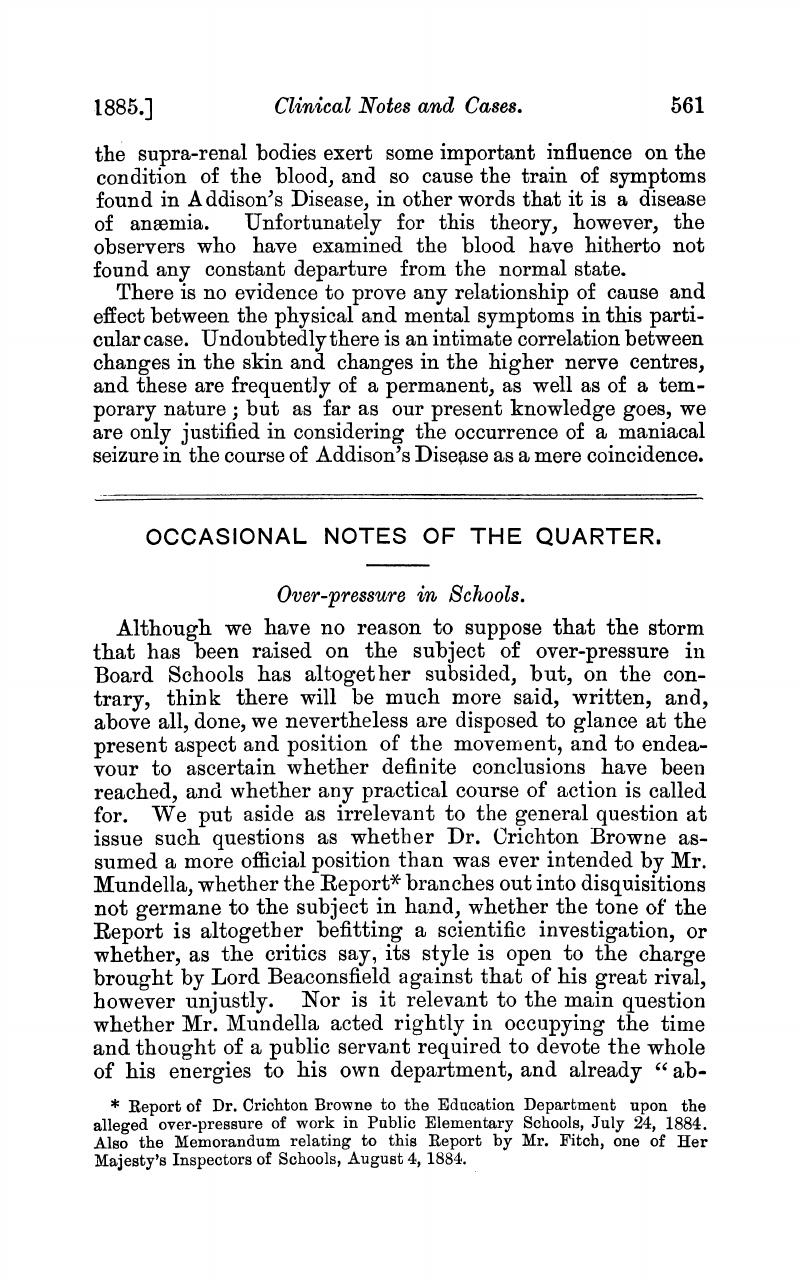No CrossRef data available.
Article contents
Over-pressure in Schools
Published online by Cambridge University Press: 19 February 2018
Abstract
An abstract is not available for this content so a preview has been provided. Please use the Get access link above for information on how to access this content.

Information
- Type
- Part I.—Original Articles
- Information
- Copyright
- Copyright © Royal College of Psychiatrists, 1885
References
*
Report of Dr. Crichton Browne to the Education Department upon the alleged over-pressure of work in Public Elementary Schools, July 24, 1884. Also the Memorandum relating to this Report by Mr. Fitch, one of Her Majesty's Inspectors of Schools, August 4, 1884.Google Scholar
*
The returns under this head must be vague and untrustworthy in the extreme, but this does not affect the argument, as they point to some disease of the nervous system.Google Scholar
†
In justice to Dr. Browne, we should add that the statement that “Dr. Browne's questions were in all cases clearly suggestive of the kind of answers he desired or expected to receive” of course only applies to those schools in which Mr. Fitch was present and observed, “with some amusement, the peculiar methods by which Dr. Browne sought to verify the conclusions he had already arrived at and publicly set forth.” Or, again: “I confess that I witnessed with astonishment the manner in which the data for remarkable statements were got together. When I visited a pupil teacher's centre-class with Dr. Browne, leading and highly suggestive questions were put; hands were held up and counted; impressions and opinions were asked for and apparently accepted as facts; and there seemed to me to be a lack of the most ordinary precautions for distinguishing between what was typical and habitual from what was only occasional.” We repeat, Mr. Fitch's criticism only applies to what he himself alleges to have observed.Google Scholar


eLetters
No eLetters have been published for this article.